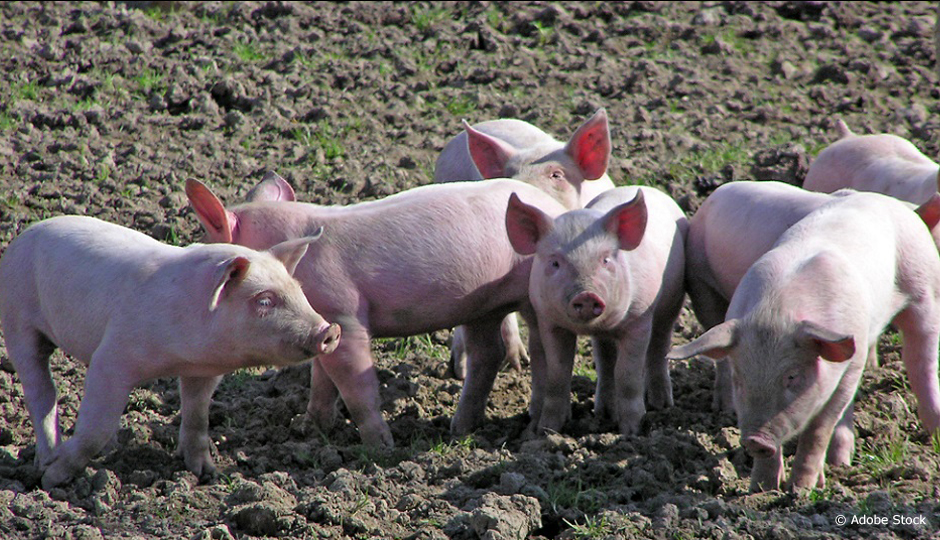
The human microbiota has received a great deal of attention from the scientific community. In fact, the transplanting of good bacteria into the gut has allowed patients to recover from certain chronic infections. Could such a method also be applied to animals? A research team led by Alexandre Thibodeau and Josée Harel, from the Faculty of Veterinary Medicine at Université de Montréal, and Martin Lessard, Mylène Blais and Luca Lo Verso, from Agriculture and Agri-Food Canada, has been looking into the case of piglets. The team demonstrated that it is possible to transfer the intestinal microbiota of one healthy piglet to another.
The research team managed to transfer the microbiota of weaned piglets to suckling piglets.
In pigs, the weaning stage is crucial. Many piglets develop intestinal diseases after weaning that slow down their growth and affect their well-being. Pork producers generally turn to antibiotics to help restore the health of their herd. Why not instead modify the piglets’ microbiota, equipping them with bacteria that block pathogens? Through fecal transplantation, the research team demonstrated the potential of this approach, transferring the microbiota of weaned piglets to suckling piglets. These new bacteria successfully established themselves in the animals’ gut.
In a context of increasing antibiotic resistance, modifying the microbiota is an interesting prevention solution for pig farmers. In addition to improving the animals’ intestinal health, this could have a beneficial effect on their immune system. These breakthroughs in animal microbiota could also be transferred to the human model, leading to advances in research including the control of inflammatory bowel diseases. The project was funded by the Swine and Poultry Infectious Diseases Research Centre (CRIPA) and the Institute of Nutrition and Functional Foods (INAF), two strategic clusters funded by the FRQNT.
